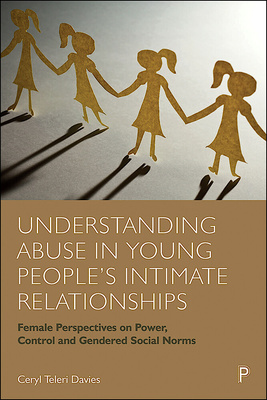There are growing conversations on everyday harassment and abuse across public spaces and social media platforms, with a re-focus on the harmful impact of gendered social norms on the prevalence and acceptance of abusive behaviour.
This re-focus, albeit ignited by horrific events including the murder of Sarah Everard in 2021, is intended to shift power dynamics by challenging everyday abusive behaviour. Structural power dynamics that favour young men continue to provide the breeding ground for attitudes supportive of harmful gendered social norms and gender-based violence. This has resulted in everyday abusive behaviour being both minimised and accepted across communities. As such, young women lack the power to engage in relationships that adhere to what they expect, want or desire within a healthy relationship.
The hope is that the landscape for change is on the horizon, following the implementation of the Domestic Abuse Act in 2021. Placing domestic abuse on a statutory footing, with the aim of giving power to young women to share their experiences of a continuum of abusive behaviour, is a progressive step towards giving young women an equitable voice.
So how do we then, as communities, begin to make sense of and respond to a continuum of gendered abusive behaviour?
The core of multi-agency prevention and early intervention work with young people should focus on the transformation of unequal power relationships, and the attitudes and behaviours that underpin these. If we are to understand the nature and patterns of abuse in teenage relationships, then we must acknowledge how young people construct meanings about their sexual selves, their relationship aspirations, their understanding and their attitudes towards ‘good’ and ‘bad’ relationships. As part of this prevention agenda, we need to promote work with young people across our communities.
The focus is on promoting a policy of healthy relationship education that concentrates on a ‘whole-community approach’ – a new model that is outlined and offered as an option in my book – that includes tackling gender norms as its foundation. The policy should go beyond the school setting to incorporate key multi-agency stakeholders, parents/carers and the wider community.
A whole-school approach would provide a comprehensive framework for healthy relationship education beyond classroom learning, with the aim of shifting overall attitudes towards equality, gender and relationships. Such an approach would entail the use of teaching tools/prevention packages, including a focus on gender stereotyping and the tackling of embedded beliefs of gender inequality and sexism. However, we also need a whole-community approach, in order to tackle the harmful attitudes that scaffold this form of abuse and its perpetration. The focus of a whole-community approach would be on addressing the root cause of abuse in young people’s intimate relationships, and the impact of harmful gendered social norms, and would adopt a culture of cooperation, multi-agency working and effective communication across diverse communities.
The development of such a strategy is informed by a robust and inclusive co-productive and partnership approach which considers the structural-, community- and individual-level factors that influence the nature and prevalence of this form of abuse. At its foundation is a core community of practice (CoP) that shapes its development in a bespoke and targeted manner based on the needs of the community in question. Therefore, there are two crucial elements: firstly, the multi-agency CoP, and secondly, the completion of a local population needs assessment.
The key objective is to empower a sense of community partnership based on a shared vision and agreed goals. Communities should work towards identifying the impact of gendered expectations on young women’s abilities to navigate the ‘uncharted territory’ of young intimate relationships. Young women continue to face challenges when negotiating their feminine identity. Prevention programmes should focus on promoting their confidence and individual agency. This re-evaluation will assist young women to construct their position in a manner that reduces the likelihood that any form of negotiation and power comes at a cost.
The impetus for change appears to have the momentum of the new Domestic Abuse Act (2021) and the promise of change in peer-on-peer sexual harassment and abuse in schools. The commitment to sustain attitude and cultural changes that scaffold unhealthy gendered social norms remains uncertain. This should not deter us from our civic and moral duty of challenging abusive and harmful social norms and behaviour.
Dr Ceryl Teleri Davies is a Social Care Economist at Bangor University.
Ceryl is also developing an online, multi-disciplinary CPD course focused on exploring the strategy and application of a Whole Community Approach on preventing abuse. A pdf copy of the book with be available with the course materials. For further information on the course, please contact ceryl.davies@bangor.ac.uk or lois.mcgrath@bangor.ac.uk
You may also be interested in Transforming Society ~ Sexual agency: Are we giving young women a voice?
 Understanding Abuse in Young People’s Intimate Relationships by Ceryl Teleri Davies is available on the Bristol University Press website. Order here for £24.99.
Understanding Abuse in Young People’s Intimate Relationships by Ceryl Teleri Davies is available on the Bristol University Press website. Order here for £24.99.
Bristol University Press/Policy Press newsletter subscribers receive a 25% discount – sign up here.
Follow Transforming Society so we can let you know when new articles publish.
The views and opinions expressed on this blog site are solely those of the original blog post authors and other contributors. These views and opinions do not necessarily represent those of the Bristol University Press and/or any/all contributors to this site.
Image credit: Kylie Lugo on Unsplash


